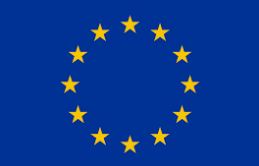Introduction
This blog is about Introducing European Economic Community (EEC/EU) and readers will be informed about its benefits and drawbacks also.
What is European Economic Community (EEC)?
European Economic Community (EEC) was moulded as a response to form economic integration among the member states through the Treaty of Rome in 1957 (Camps, 2015). In 1993, EEC has renamed the European Community (EC). Finally, the constitution of the EC was absorbed into the wider framework of the European Union (Camps, 2015).

You may feel interested to read below posts:
Pros and cons of contract manufacturing
Why pharmaceutical companies go for contract manufacturing?
Benefits of EEC
Gstohl (2015) revealed that EEC had created a unified economic zone where people, goods and materials can move with minimum obstacles. Such free movement of people and materials creates more economic activities and, as a result, creates more job opportunities for the people of member states of the union. Furthermore, it boosts economic activities and progress in the member economies.
Secondly, EEC has enforced stringent regulations to protect the environment from pollution and to preserve the historical heritage and natural attractions (Barth and L’Hermite, 2012). The such effort helps the communities in the EU zone to sincerely protect their environment, which positively affects their social well-being. Additionally, the protection of natural attractions and historical heritage attracts a large number of tourists from different parts of the world. Therefore, tourism in the EU is growing day by day.
Featherstone and Ginsberg (2016) revealed that EEC enabled the countries to ensure free movement of goods and people, removal tariffs in inter-countries business etc. all of which played great role in removing economic technical obstacles and easing business among nations. As a result, their business grew tremendously, and all of the member states were highly benefited economically.
Drawbacks of EEC
Cnossen (2013) revealed that the most prominent disadvantage of the EEC is the lack of control on the border lines of the member states. As a result of less-stringent control on the borders, it is difficult for nations to control the movement of people with bad intentions. Moreover, there is a high risk of terrorism in inter-countries scenarios.
Secondly, there is increasing concern that there is a lack of transparency on how the votes from member states are counted and how decisions are made in the European Union Parliament (Mann, 2013). Such lack of transparency among the member states will create a lack of confidence among the countries, and the main objectives of the EEC will be hampered.
Finally, the operations of EEC come at a huge cost, which the member states have to pay (Feldstein, 2011). This fee is considered an extra expense for many states of the region.
Reference
Camps, M., 2015. Britain and European Community. Princeton, New Jersey: Princeton University Press.
